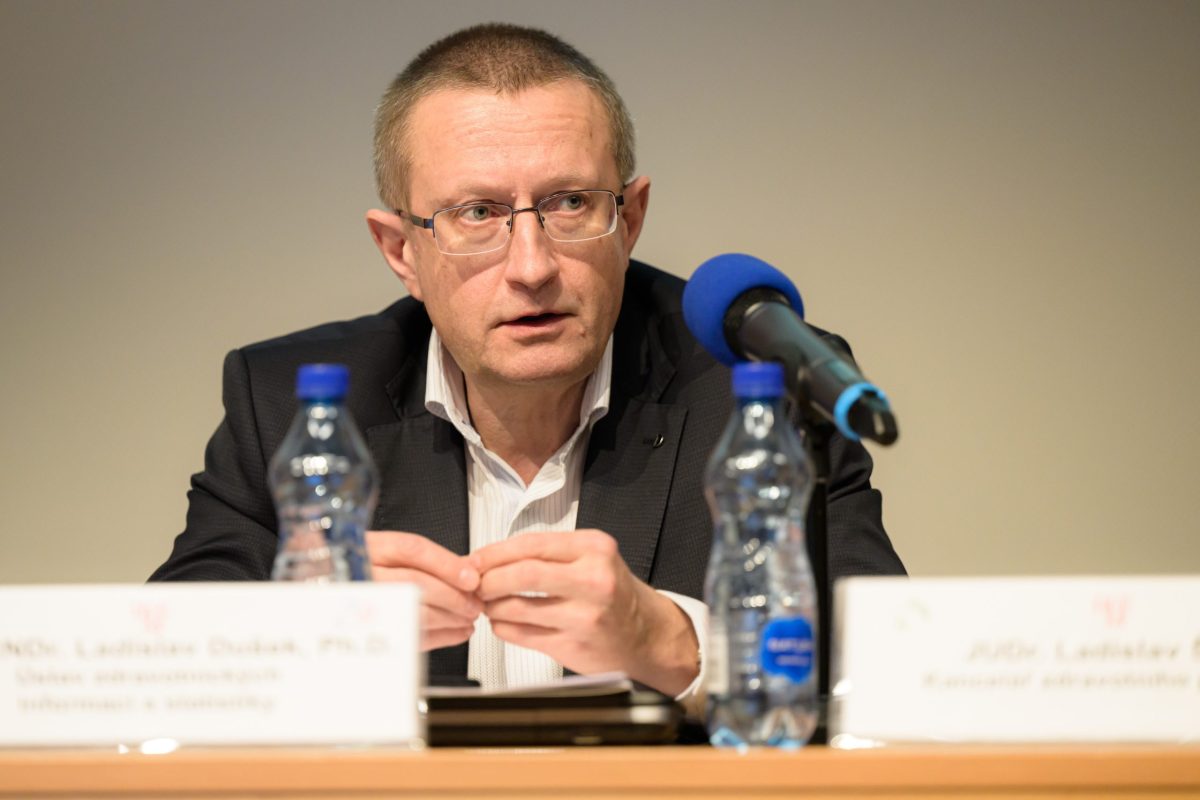We have been fighting against cardiovascular disease for many years. We know the main risk factors and are working to eliminate them. But about 20 years ago, the relatively significant decline in the number of deaths from these diseases stopped. Those able to quit smoking, drinking, change their diet, and start exercising have already done so, says Reuven Zimlichman, director of the Tel Aviv University Institute for Cardiovascular Disease Research. This leaves the stubborn ones, who do not heed existing prevention methods and need to be approached in a completely different way. For example, by thinking about how we can at least reduce the damage to health caused by their favourite bad habit.
Approximately twenty years ago, there was a halt in the significant decline in the number of deaths from circulatory system diseases in developed countries, including the Czech Republic, and the situation has not significantly changed to this today. „If we want to achieve further declines, we need to search for new approaches to prevention,“ Reuven Zimlichman, director of the Institute for Cardiovascular Disease Research at Tel Aviv University, said at the 2nd Annual International Panel of the Permanent Conference on Healthcare.
First and foremost, he said, we need to focus on the youngest generation and educate them on how to live healthily and why. „If we want to prevent the emergence of new smokers, we need to focus on children. We need to explain the problems that arise if they become addicted to cigarettes,“ he points out.

And then it is necessary to be open to new approaches in prevention. These include, in particular, the concept of risk minimization, where existing methods have ceased to work. „Someone in their sixties will not respond to a warning that smoking kills. They heard that thirty years ago,“ explains the professor.
He believes that the government has a very important role to play here. It should set up expert groups to evaluate alternative therapies, that could prove that these alternatives are better than the original addictions. „We need to keep an open mind and apply the principle of minimizing risk and harm wherever possible,“ Zimlichman urges.
People are making the wrong choices
Experts have so far identified about 200 risk factors for the development of cardiovascular diseases, still the biggest killer in the Czech Republic. However, the most important factors number „only“ around twenty. According to Professor Zimlichman, they can be divided into three groups according to the extent to which they are preventable and treatable. „Those that can be changed include, or so we think, smoking, obesity, eating habits, stress, excessive drinking, or lack of exercise. There are patients able to quit smoking, improve their diet and lose weight. But on the other hand, there are those who cannot,“ he explains.

Examples of risk factors that cannot be prevented include age, gender, family burden, or ethnicity. Finally, these are factors that also lead to disease progression, but we can treat them: the better, the less severe the disease. Experts include, for example, high blood pressure, elevated cholesterol, heart arrhythmia, or diabetes. „The more risk factors arising together in one patient, the more the risk (of disease severity) multiplies. If even one single risk factor is addressed, it will significantly affect the whole cardiovascular risk,“ the professor stresses.
In terms of causes of death from cardiovascular disease, Zimlichman says that we should be most concerned about high blood pressure, followed by smoking and high blood sugar. Lack of exercise, being overweight and obese, or high cholesterol have a slightly smaller impact.
Mohlo by vás zajímat

However, Zimlichman said that people should be expected to make bad choices, even if it has a negative impact on their health. Doctors must therefore seek a compromise between the patient’s freedom to make decisions about their lives and expert recommendations on lifestyle, habits, and treatment. „And that does not always happen,“ he says.
The solution lies in the principle of minimizing risks and damage to human health. It is already successfully applied in many areas: „In the case of an unhealthy diet, we use statins, stents, or antiplatelet agents. We protect ourselves from sunlight with filters. We address sweet cravings with sugar substitutes. We protect ourselves against sexually transmitted diseases with condoms or vaccinations,“ Zimlichman says.
Trying to quit smoking always makes sense
He believes that there is major room for this principle in the area of smoking. „There are many scientific studies and data on the importance of not smoking. Even if you’re already in hospital with a myocardial infarction, if you stop smoking immediately, your risk of another episode halves within a year. And within two years to the level of the general population,“ explains the professor. So even if the damage has already been done, trying to stop is still worthwhile.

But very few smokers diagnosed with cardiovascular disease are willing to do so, Zimlichman continues, going back to the aforementioned stagnant number of deaths from these diseases. „By the year 2000, there were new drugs, new treatments, major explanatory campaigns that brought about a change in lifestyle. But then what happened? The logical explanation is that people who were able to stop smoking, drinking, to start exercising, or change their diet have already done so. Now we are left with the resistant headstrong who want to continue their bad habits and have fun. And these people are very difficult to change,“ he points out.
This truly hardcore segment of the population, he says, cannot be persuaded like the rest. „All our efforts should therefore be going in a new direction. According to the WHO, there are around one billion smokers in the world, and this number has not changed for ten years. We continue to stand still without moving forward. And that is very expensive,“ he reminds the audience.

We should therefore focus our attention on new – standardized and certified – products that reduce the harm caused by cigarette smoking many times over. „Here I see a possible solution for the billion smokers unable to quit. Depending on the type of product, the amount of inhaled carcinogens can be reduced by up to 95 percent,“ says Professor Zimlichman. Moreover, he said, sufficient scientific evidence has already emerged over the past year to demonstrate a significant reduction in the risk of cardiovascular disease when smokers switch to alternatives such as heated tobacco.
Helena Sedláčková







